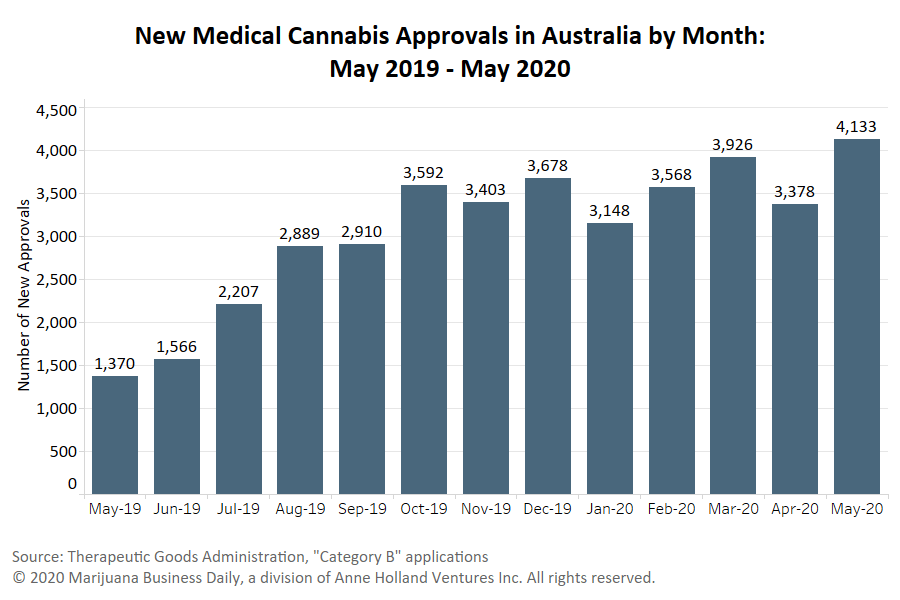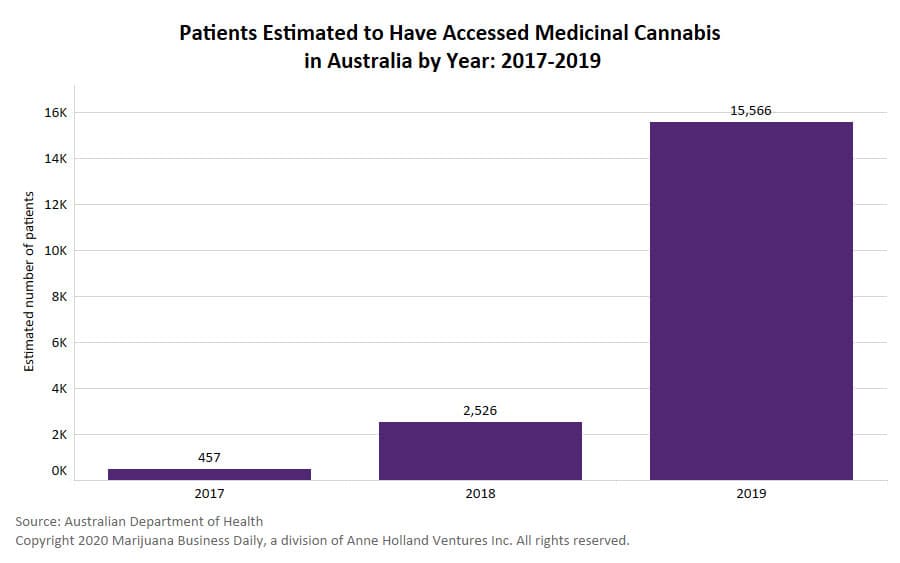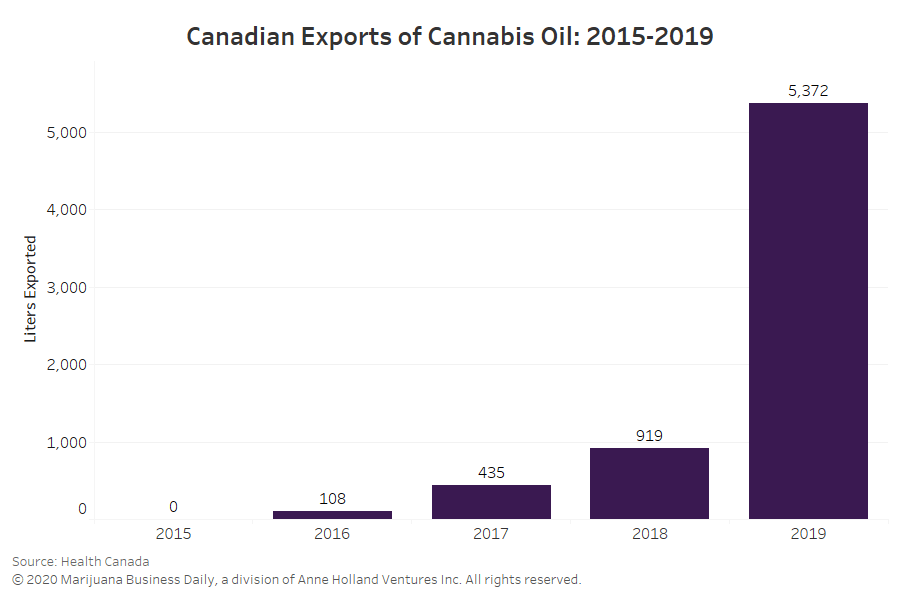Australia has amended pertinent laws in an effort to put its medical marijuana and hemp exporters in a position to “come out firing” after the COVID-19 crisis eases, the country’s agriculture minister said.
The Export Control Legislation Amendment (Certification of Narcotic Exports) Bill 2020 was approved in the House of Representatives on June 10 and in the Senate on June 17.
“The amendments will remove unnecessary and unintended regulatory barriers imposed on Australia’s exports,” according to the bill’s explanatory memorandum.
“This will facilitate trade and the growth of Australia’s legitimate export markets for low-THC hemp, medicinal cannabis industries, as well as other legitimate narcotic goods exports.”
Agriculture Minister David Littleproud said the bill broadens current legislation to allow for certification of medical marijuana and hemp exports.
“As this industry gains scale, markets will require export certification from the Australian government. The proposed amendments will allow Australian exports to meet the biosecurity import requirements for any market that requires a phytosanitary certificate,” the minister told parliament.
He said countries with strict import rules – such as a requirement for phytosanitary certificates for unprocessed plant products – include Canada, China, Japan, Korea, Thailand, Vietnam and the United States.
“These are all markets that require official phytosanitary certification – certification that the passage of this bill will finally allow Australian authorities to issue,” Littleproud said.
“This bill will enable the growth of export markets for hemp and medicinal cannabis industries. The bill will support the initiatives of the government to reduce red tape, bust congestion in regulation and enable agricultural industries to come out firing, after the threat of COVID-19 has passed,” he said.
Australia’s export ambitions come as the country hit a record of 4,133 patient approvals for medical cannabis in May.
Faster access
The legal amendment will allow Australia’s Department of Agriculture, Water and the Environment to issue phytosanitary certificates for the export of medical marijuana and hemp products, Rhys Cohen, principal consultant for North Sydney-based data firm FreshLeaf Analytics, told Marijuana Business Daily.
“The lack of phytosanitary certification was identified as an issue in 2018,” he said. “Since then, government assurances have been used in place of certificates.”
The process of gaining such government assurances is a time-consuming affair, putting local producers at a disadvantage, according to Sen. Perin Davey.
“For our legal narcotics, we want to ensure that our growers are not at a competitive disadvantage in international markets, and this bill deals with that quickly and efficiently,” she said.
The bill effectively eases restrictions so Australia’s producers can access more markets.
“This legislation is designed to give our producers of legal narcotic products the same chance as we give to our wool-, beef- and wine-producing farmers, who enjoy the status of being leading Australian agricultural exporters,” she said.
Sen. Kristina Keneally said, “We think it is time for the government to harness the full potential of this crop.”
Competition grows
The number of countries hoping to capitalize on medical cannabis exports is growing more quickly than the markets they’re hoping to reach.
That could create a major problem for businesses under the false impression there is a multibillion-dollar global export market.
Canada, for example, exported a record 5,372.3 liters (1,419 gallons) of cannabis oil products in 2019, along with 3,740 kilograms (8,245 pounds) of dried cannabis for medical and scientific use.
However, most of those exports went to only a few markets – one of which was Australia.
To tap the leftover markets, Australia’s cannabis producers must compete against those from the Netherlands, Canada, Colombia, Denmark and Israel.
Countries with a keen eye on the export market also include Jamaica, Greece, Portugal, Lesotho, Zimbabwe and New Zealand, and the list is growing.
In the meantime, some of the world’s largest cannabis producers, including Aurora Cannabis and Canopy Growth have scaled back their lofty international ambitions.
The explanatory memorandum for Australia’s new law is available here.
The text of the law is available here.
Matt Lamers is Marijuana Business Daily’s international editor, based near Toronto. He can be reached at mattl@mjbizdaily.com.







